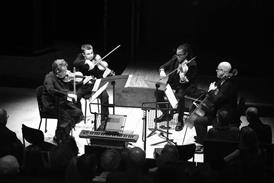- News
- For Subscribers
- Student Hub
- Playing Hub
- Podcast
- Lutherie
- Magazine
- Magazine archive
- Whether you're a player, maker, teacher or enthusiast, you'll find ideas and inspiration from leading artists, teachers and luthiers in our archive which features every issue published since January 2010 - available exclusively to subscribers. View the archive.
- Jobs
- Shop
- Directory
- Contact us
- Subscribe
- Competitions
- Reviews
- Debate
- Artists
- Accessories
Historical lutherie methods: Salts of wisdom

Remy Gug examines the treatment of wood described in several manuals of the 16th to 18th centuries, in this article from July 1987
Few topics stir the fancy of our craftsmen, artists or scholars as much as the search for the (so-called?) ‘secrets’ of the old masters. During the last few decades most promising scientific and technological methods of analysis have been developed. In so far as it is possible to analyse the materials of the early works in our laboratories, we can sometimes take a very close look at them. Such analyses can certainly give us very precise information, telling us what kind of material was used. It cannot, however, leach us how the ancient masters went about their work nor why they proceeded in their way.
In order to interpret the laboratory results, we often resort to some rather mystifying concepts. Thus we ignore the existence of a valuable scientific discipline whose great benefits for organology have not as yet been fully recognised: the history of science and technology which must help us to find an answer to the question ’how was it made?’ and ’why is it as it is?’. It views an ancient musical instrument not only as a work of art or as a ‘tool’ designed for a certain form of artistic expression, but also as the merging of thought (knowledge) and processes (knowhow) both of a purely technical nature.
The way in which the problems we shall discuss here are usually tackled cause us to doubt whether clear answers are to be found. How can we ask the old masters, when we claim so often that they left no printed documents or manuscripts that we can understand or that are worth our attention? Thus, we ignore that many more documents have survived than this popular but nevertheless wrong idea would make us believe.We neglect that in their technological works they deal with very down-to-earth questions of daily practice. Most of the time, especially from the 18th century onwards they used a language that everyone today can easily understand, if he is willing to go to the trouble of informing himself about the meaning of the terms used, about the methods of reasoning and the physical and intellectual tools of a given era.
Already subscribed? Please sign in
Subscribe to continue reading…
We’re delighted that you are enjoying our website. For a limited period, you can try an online subscription to The Strad completely free of charge.
* Issues and supplements are available as both print and digital editions. Online subscribers will only receive access to the digital versions.




























